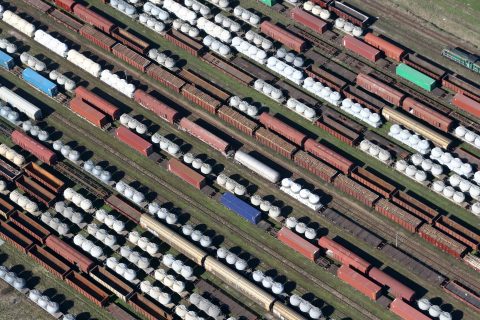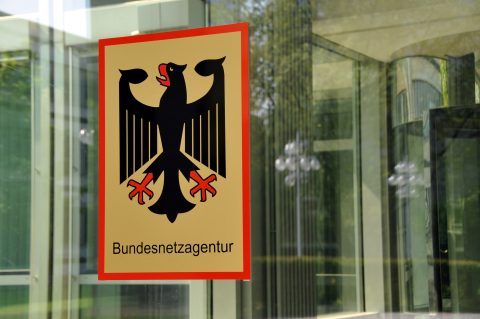How companies deal with new pandemic consignment demands

Since roughly March this year rail freight companies have seen an increase in exceptional consignments. These include products that had to be transported specifically to meet emergency needs during the pandemic or the consumer changes in behaviour brought on by the lockdown. Industry experts tell of the challenges they faced and the strategies they used to adapt to these shipments.
Companies have changed their sourcing, created new teams and adapted shipment methods to adapt to the new consignment orders. Paperless transportation and blockchain have proven strong advantages to continue using rail transportation.
Personal protection equipment
A high number of containers carrying personal protection equipment (PPE) including plastic gloves, masks and hand gel has been transported between Europe and China since the outbreak of COVID-19 this year.
In the UK, for example, freight companies such as Speedy Freight were delivering critical apparatus such as ventilators to hospitals. Confectionary goods were also shipped to hospitals to boost the morale of essential workers; as well as furniture for COVID-19 test centers and vital signage for supermarkets for social distancing measures.
Erik Groot Wassink, director of Special Products, Nunner Logistics says: “Since the start of COVID-19 you see a lot more movement of PPE. […] There were enormous shortages and there were lots of delays. We have had to change our procedures to deal with this. We changed our internal operations.”
Dog biscuits and trampolines
Rail freight companies are also transporting higher volumes of pet biscuits and supplies, mainly for dogs and cats. These companies are also witnessing a demand for recreational equipment since the onset of COVID-19, of which trampolines appear to be a hot favourite.
Dennis de Roo, managing director and chief executive officer of Van Donge & De Roo says they have seen different products than normal coming through. The trampoline is one such product that the company has been shipping more regularly.
“One of our customers made a large order. It is unbelievable how many of such items are coming from China. Many people took dogs and cats during the corona crisis, so you see that demand is going up”, says De Roo.
From LCL to FCL
According to Groot Wassink PPE was quite a new product back at the start of the pandemic, which has increased significantly over the year. “Currently we look at volumes seven times higher than in 2019.”
At the same time, there was a shortage in supply of these products, due to the closure of factories in China. Nunner Logistics first mitigated this shortage by sourcing from Germany or the United Kingdom. It eventually created a special team to deal with the trafficking of PPE goods. The team was established directly in China to handle the clearance of the necessary documentation and export declarations. “There are several regulations in China for export clearance. We have a special team in Shanghai handling this”, says Groot Wassink.
The company also shifted their shipping method from Less than Container Load (LCL) to Full Container Load (FCL), combining several shipments in one container box. This facilitates one shipment to one customer in Europe. Nunner Logistics says to expect many bookings until the end of October. According to Groot Wassink, most countries have the required levels of stock of PPE at the moment.
Paperless transportation
Profits dropped by about 20 per cent on average for rail freight companies due to lockdown measures undertaken during the pandemic. Some companies, however, had good measures in place before the pandemic and were able to withstand the economic rigours.
De Roo says in the first six months of this year Van Donge & De Roo BV ran into a profit deficit of 1 million Euros, but that this did not form a threat to the company. One of the things that helped, was the fact that it was shipping ‘paperless’. Less paperwork means less human interaction, an advantage during the corona crisis.
The company makes use of blockchain, de Roo explains. This enabled paperless transport since 2016. Moreover, the operator has been using rail transportation for a while, also before the pandemic. De Roo advised industry players to diversify their products. “Don’t only focus on imports or exports”, he concluded.
You just read one of our premium articles free of charge
Want full access? Take advantage of our exclusive offer





